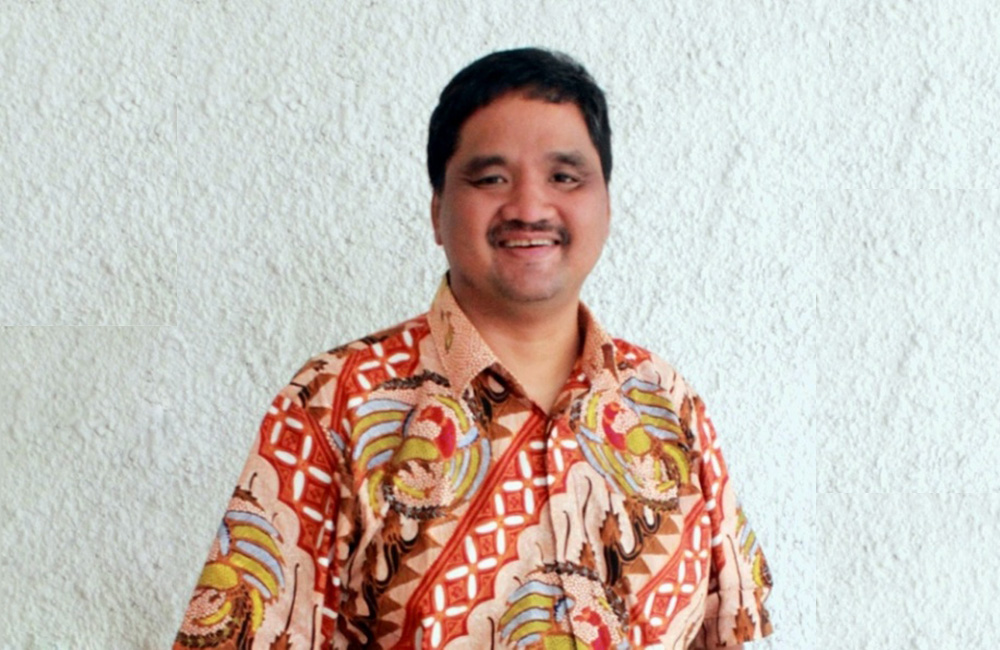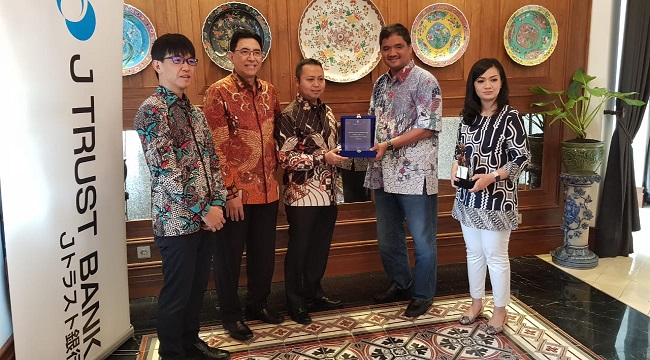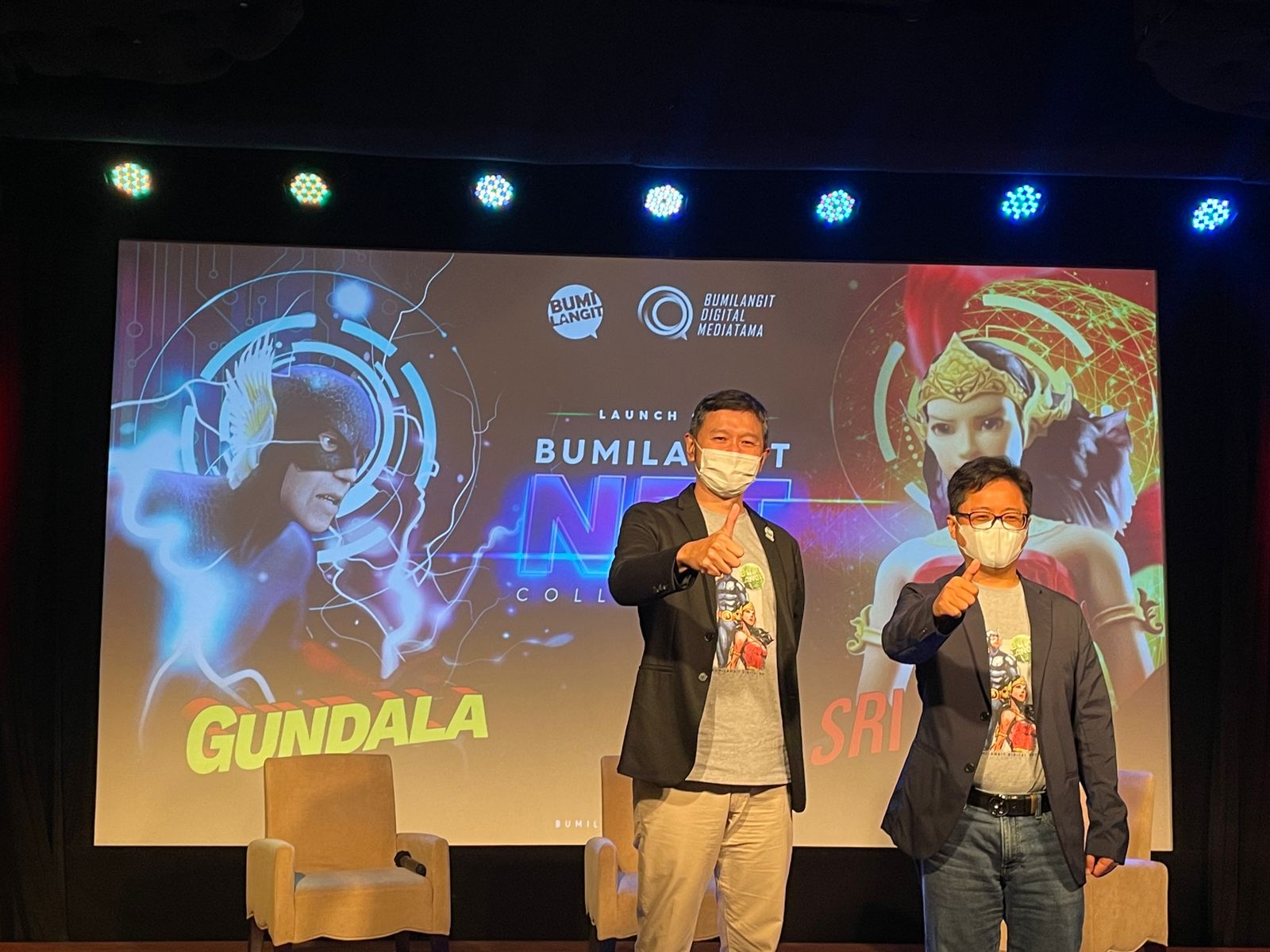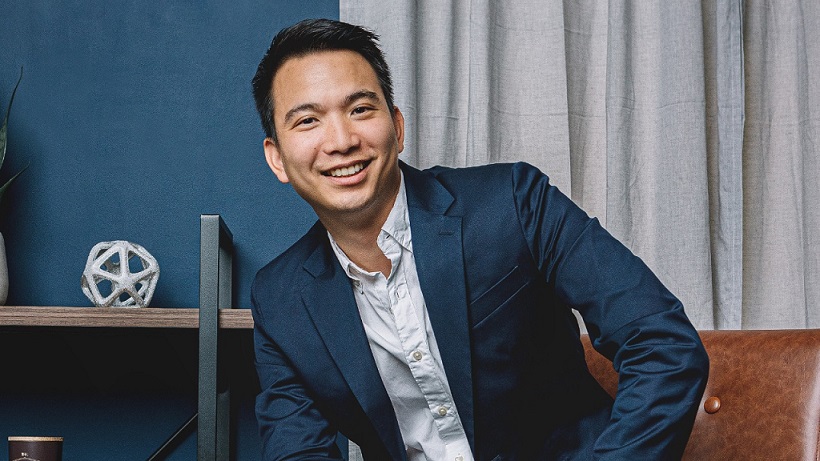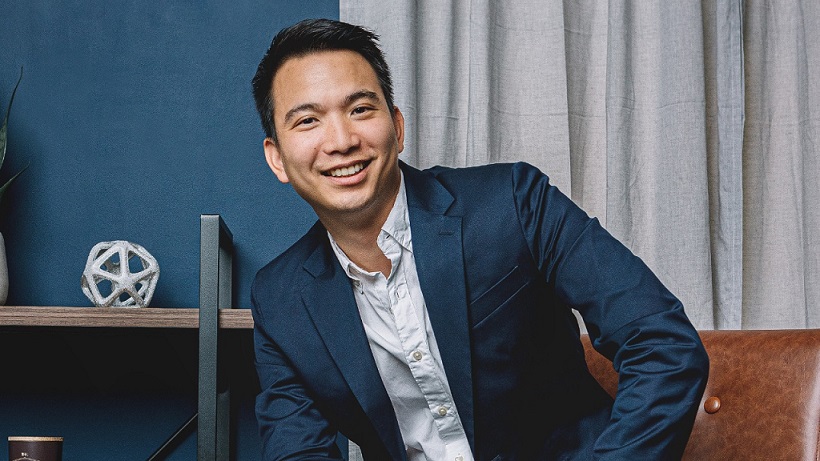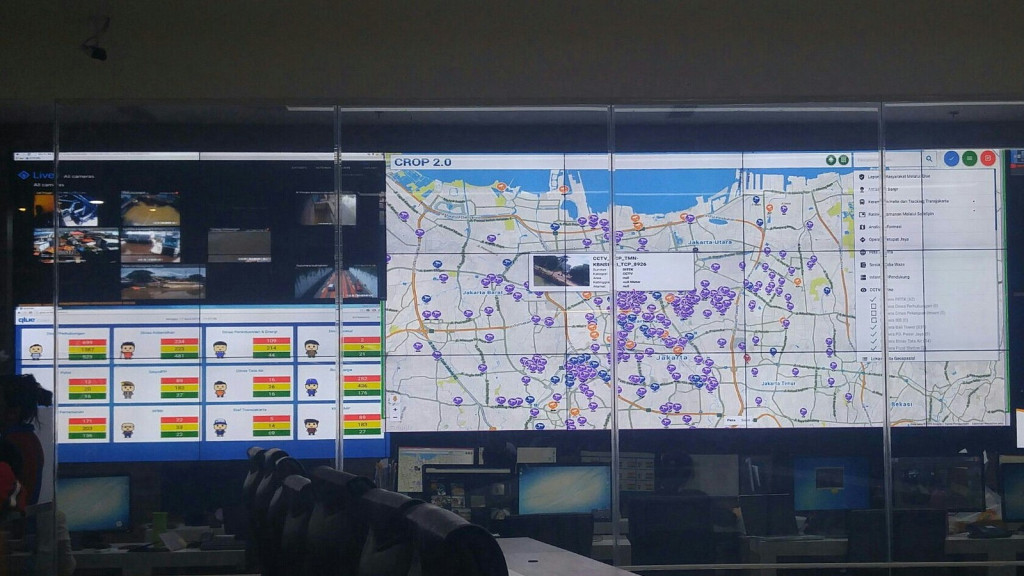This article is a part of DailySocial’s Mastermind Series, featuring innovators and leaders in Indonesia’s tech industry sharing their stories and point of view.
Izak Jenie was having an ordinary life before he got introduced to the tech industry. He was amazed by the technology and what he can do with it. He started many companies at such a young age and experienced some failures during his business era.
In his 40s, he never stopped to create value and making innovation. Sticks and stones may break his bones but technology and internet always excite him. He is now the CEO of JAS Kapital, Founder of MCAS Group, and contributors to many other tech-related activities.
Below is the excerpt to sum up the dynamic chart of his career in the tech industry.
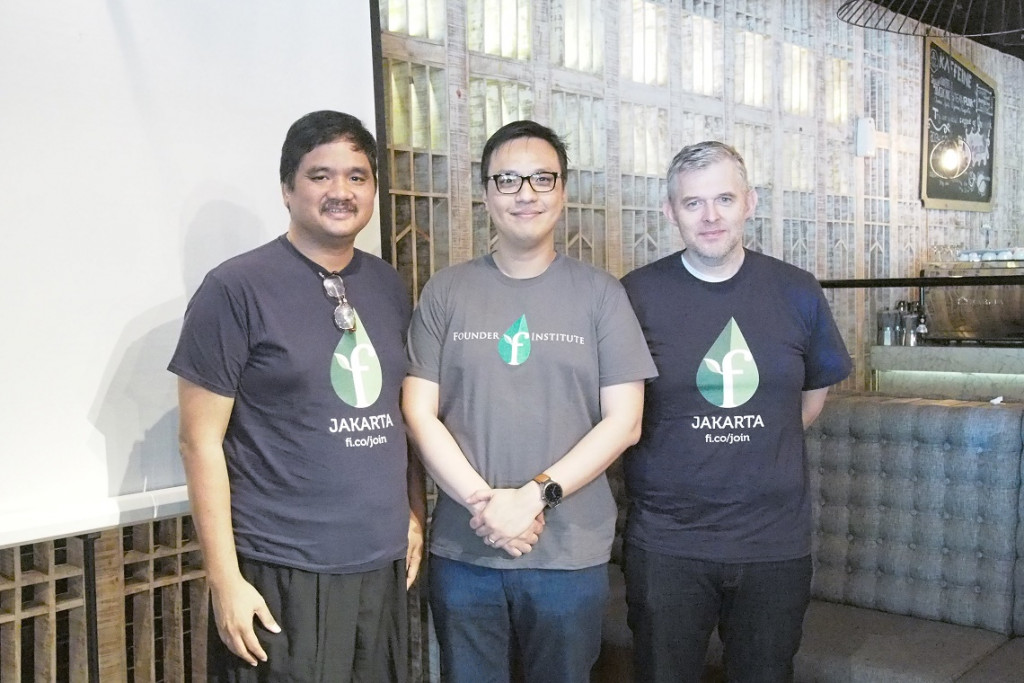
You’ve been having encounters with the tech industry at a very young age. What was your childhood like?
It was ordinary, spending most of my time playing around the neighbourhood. Back then, I was studying in one of the private schools in Jakarta with many regulations I’m not fond of. My health record was bad, I used to get convulsions and have asthma, thank God I’m still alive.
There is no academic issue back in the old days, but authority triggers me. I even made a petition when the school rescheduled PE to Bahasa Indonesia unnoticed, due to the absence of the teacher.
Who introduced you to technology?
My late father, Aldi Jenie. He was working at one of the state-owned enterprises, Pertamina, and also tech enthusiast. He often brought me to his office to see the latest technology and introduced me to the programming industry at the early days. When I was only 12 years old he introduced me to programming in the mainframe. I created my first programming language named APL (A Programming Language). I’m hooked! I learned so much from many computer books he brought while travelling/on duty, he even bought the first and very expensive IBM PC to support our interests in technology.
He taught me so much of technology and life itself. Having a position as a Group Head, we didn’t really dig a fancy life, he still made money out of freelance translation. The one thing he always says is to be grateful and don’t bite off more than you can chew.
Having a daily encounter with technology, are you having any issue with a social life?
Since I was a child, my father always told me to speak up. I do lots of public presentations, also learned so much about people interaction. I was a mentor in computer science since high school. I entered Trisakti university and took a major in Electrical Engineering because my friends doing so. Yes, I have friends.
My activity used to be doing music and computer all the time, I take it until my college life. I started computer clubs on campus also for the public and joined campus choir before I finally graduate after missing some classes because I’m too preoccupied with work. In fact, this is where I met my current wife, she motivated me to finish university.
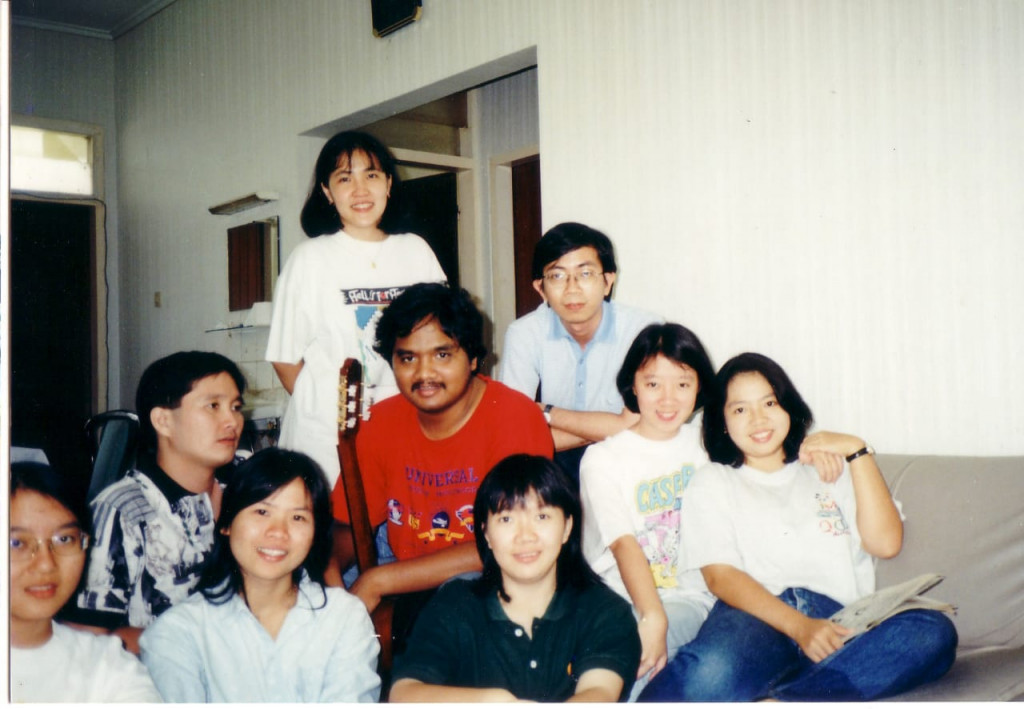
Have you ever worked in a company?
Yes, graduated in five years, I have difficulty in finding jobs. While my friends were working at high-profile companies, I was unemployed for 6 months. Most of the top-five companies reject my application, it was until an opportunity appears from BBS (Bulletin Board System) that one of the popular private company in Indonesia is looking for a high-skilled computer graphic graduate.
The interview went well and I got to talk so much on my favourite subject. After the not-so-long process, I got accepted with a salary above my expectation. It’s not even a week after my successful interview, I just declined an opportunity by another well-known firm. This is where I learned about commitment.
In 1994, you came up with VoIP. How did you come up with such an idea and make it into global recognition?
It was after I graduate college, my specialty is actually to solve a puzzle. Back then, when the internet was still a rare thing, there’s a specific modem that can convert voice into data. I initiated the idea to connect modems and create software to send signals. It might sound simple nowadays, but in the 90’s it was such a revolution. In current layman terms – it was P2P Community Phone Network in 1994.
I made a pact with two other internet enthusiasts, Jeff Pulver in New York and Brandon Lucas in Tokyo, we started to develop the idea and make it into the news in London Financial Times, Wall Street Journal and other big media. It really helps with my career until now.
After the discovery, what did you do? When were you started to build your own company?
First thing first, I resigned from the job I had. VoIP has taken most of my time at the company. Meanwhile, this world is too full of opportunity to just stay back by the desk. This has become my first and last job.
When we’re talking about building a company, actually, I started my own company of computer graphics at the 2nd semester in my college year, earned money by making flying logos to pay my own bills and tuition. It was long before I met some great colleagues and shared insights from many parts of the industry.
In my exploration time, I met someone in a similar industry which was fond of my idea and willing to invest some cash. Euphoria struck hard and I was spoiled by easy cash. My first trial is an online bookshop named Sanur.com and it didn’t work as planned. I’m having an argument with the investor and decided to step out. After a long process and a project worth Rp200 million, I can finally make peace with my last company. Jusuf Sjariffudin also took part in the success, with Ishak Surjana, we created a company named Jatis.
You started Jatis, build the whole company from scratch until making impact. Why you decided to leave?
We started Jatis as an Enterprise Consultant when foreign business arrived and dominate the market. My strategy was to sign contracts as much as possible by pitching with many potential clients. However, our attempt to create a perfect and solid project management model does not supported by good pricing model. Consultancy is a tough business when you are a local player since mostly you don’t command the pricing structure and it becomes an issue when we’re trying to scale-up.
Accelerating from small to middle-size might be easy, from that point further is the crucial part, whether to stay or to climb higher. I left Jatis because of my interest shifted in B2C technology market and I’m pretty tired back then as a consultant to do the same B2B over and over again every year. My business life was like spinning toy – I circling around in the same place for years and cannot innovate further. It’s not easy to leave a company where you’ve been working for 12 years.
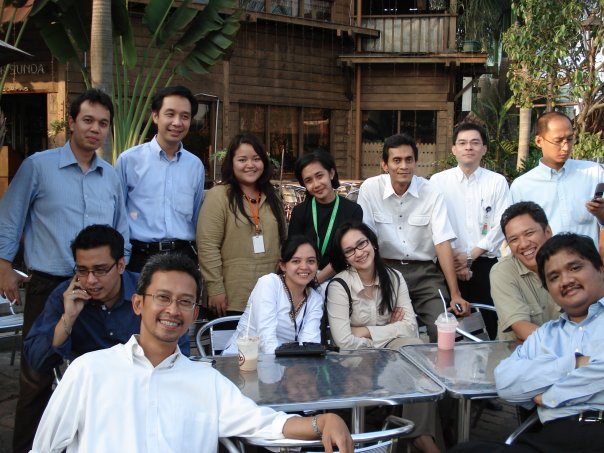
During your business experience, how did you manage to rise from the failure?
I think it was the lowest point, there is no place for me in the industry, I was so close to being a public enemy. Finally, I had a meeting with my mentor, also my old friend – Simon Halim – he was ex-CEO of E&Y. He taught me to make plans and report the progress every week to him. He helps me carefully list all my problems, categorized it one-by-one and create a solution for each. Step by step, I get back on track and managed to get out of all my problems in three years. Fighting your problems and debt is like taking the swimming practice, you just start your long swim and take a breath every 10m or so. As long as the finish line does not move – you will get there eventually.
During this moment is also the starting point of Nexian era. I was in the long queue to buy the handset when I decided to approach the founder and declared my mission to create a better app for the product. It turned out well and Nexian becomes the hype that day. I created a company together with Nexian, focus on mobile content for handsets. We created dozens of handset concept with the help from notable celebrities like Slank, Anang, Ashanti, Syahrini and other innovative concepts. Nexian JV is my first highly-profitable company.
Currently, you are the CEO of JAS Kapital, Founder of MCAS Group, and contributor to many other activities in the industry. Tell me more about the journey.
My life becomes more interesting when I met my current partners — Jahja Suryandy, Martin Suharlie, and Michael Stevens. Together we started MCAS Group in 2017 with the vision to disrupt the digital ecosystem in Indonesia. We took the company public and now the business grows very fast. We are now conducting in-depth research on AI technology and Fintech, focusing on reshaping various industries for the next 20 years.
There is no single industry able to escape technology penetration, and in the next 20 years, we are to shift most of the work into machines. It doesn’t mean to be unemployed, but most people will move to much better jobs with more free time in their hand for the most important thing in life: family.
I might have made some bad decisions in the past, but hard-working, ideas, persistence will always help us progressing every day. I always look up the quotes “Lack of money doesn’t make you lose your value, but lack of idea is,” and I never stopped producing ideas up until now.
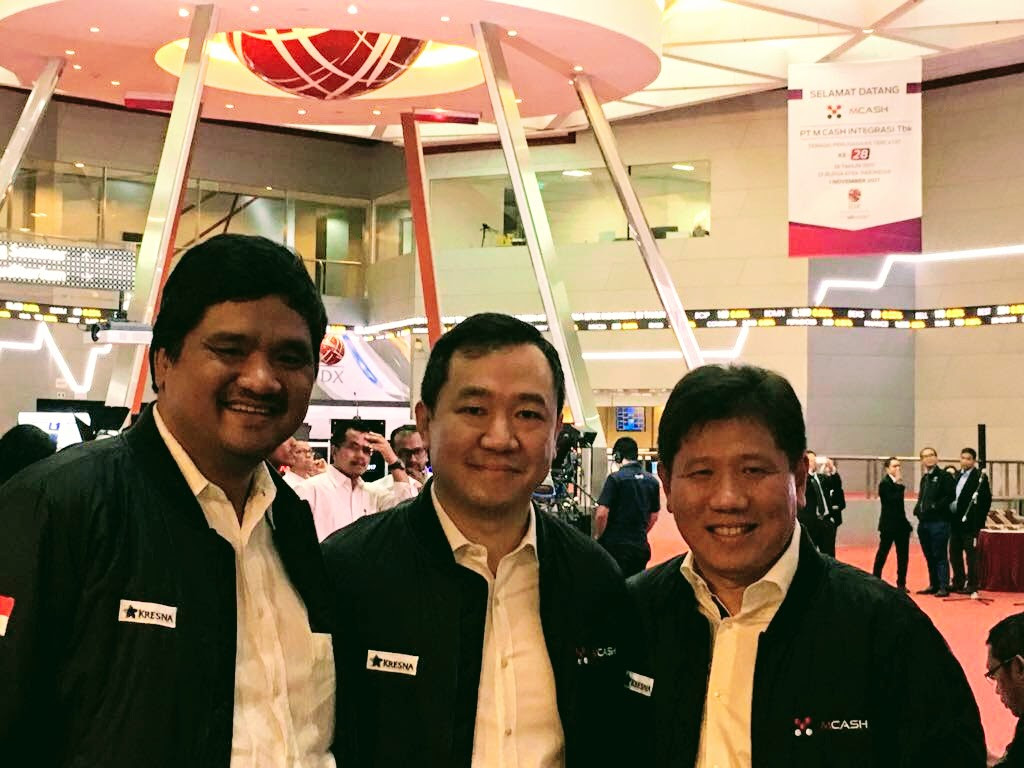
You’ve known as a speaker at tech-business events and also a mentor to many startup incubators. What do you think is very fundamental in building a business?
The hardest part of developing a company is to transform a personal-based business into an institution. In order to survive, one must build a system and fix the fundamental issue first. Also, focus on what you’re doing now, do not get too excited you started so many businesses you have no time to handle. Try not to bite off more than you can chew.
For those who want to start, let’s go back to the most fundamental part of the business – create a healthy profit. Basically, your cost should be less than your revenue, and the difference of it is simply called profit – please don’t try to come up with other definition as most startups do.
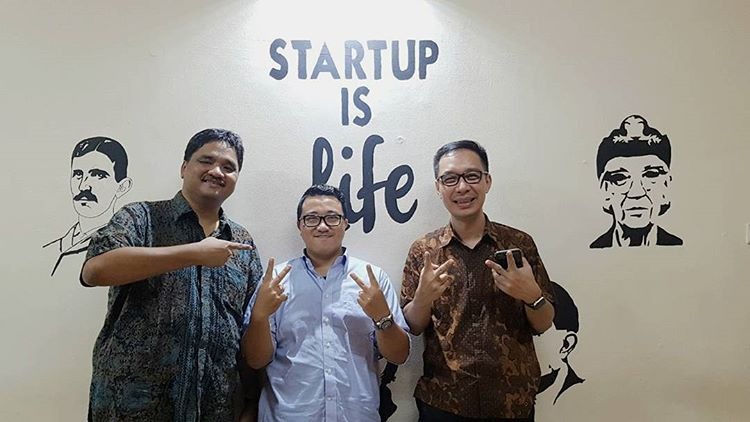
Nowadays, startups are bleeding and it’s not really good for the industry. Toxic mindset is mushrooming where startup founders think that it is ok to lose money and chase the future nirvana. Well, not everyone will become Unicorn, only those who are persistence, have a good network and execute well are capable. The rest has to struggle for the company to stay afloat and it’ll be very difficult when you have no profit. I’ve seen too many cases where founders got exhausted and not only the business failed but their personal life as well.
Thus, as much as possible – make your startup profitable. VC money is a good way to jumpstart your business, however, don’t be spoiled with multiple series of VC money and try to run the company independently. Once you master it, most people can easily replicate.

